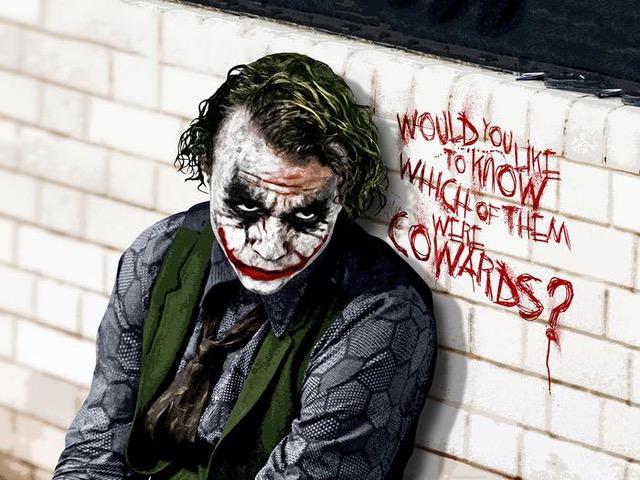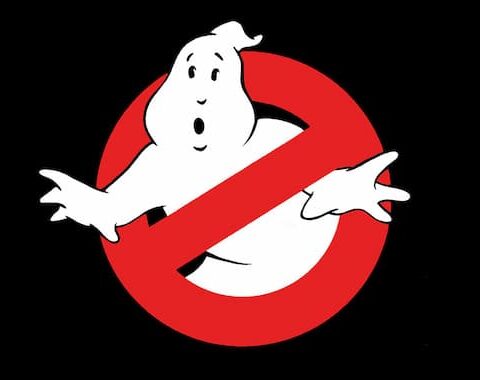A diary kept by the late actor Heath Ledger while he was preparing to play The Joker in the classic 2008 Batman film, ‘The Dark Knight’, has excited a lot interest among fans recently.
Some websites have been reporting that the diary video is from a soon-to-be-released docu-film called ‘Heath Ledger: Too Young to Die’; it isn’t.
It’s actually from an existing episode of a German documentary ‘Liebling der Götter’, from 2012.
It does, however, reveal even more about the degree of Ledger’s preparation for what would become such an iconic performance.
His engrossment in the role, and the depth of his preparation, has already long since become part of the film’s legendary mythology; but this coming to light of the diary adds even further to that apocryphal aura.
“He pretty well locked himself up in a hotel… for a month or so, to sort of galvanise the character in his own mind,” Ledger’s father, Kim Ledger, remembers in the documentary. “I think this was just a whole new level.”
The diary, which now surely becomes a fascinating piece of film history, features stills from Stanley Kubrick’s notorious A Clockwork Orange, which was said to have been a significant influence on Ledger’s Joker performance, along with the joker cards from playing card sets, images of hyenas and clowns, cut-out pages from old Batman comics (and we must imagine, from Alan Moore’s classic The Killing Joke), and also handwritten bits of dialogue from the film.
The reference to A Clockwork Orange, and presumably to the influence of Malcolm MacDowell’s notorious performance in Kubrick’s classic, is especially interesting in film terms. Curiously, MacDowell, unlike Ledger, was actually somewhat typecast as the ‘unstable’ type, having also played the lunatic emperor Caligula in the film of the same name; and I could easily see Caligula also being an influence on the Joker portrayal (and am now also wondering what a Heath Ledger take on Caligula might’ve been like – John Hurt’s is still the standard).
The actor rather aptly described his own take on the age-old comic-book villain as a “psychopathic, mass-murdering, schizophrenic clown with zero empathy”. It was always clear – but is even more clear now – that Ledger devoted a great deal to his take on the Joker, going to Brando-like lengths of commitment.
The result was one of the most iconic performances in cinema, to the extent that it is going to be virtually impossible for anyone else to step into that role in any future Batman incarnations.
Ledger being cast in the role, it is also important to remember, came at a time when the character had already been very memorably portrayed by Jack Nicholson in Tim Burton’s Batman movie (with the late Robin Williams also touted for a number of years as a possible actor to succeed Nicholson in the Joker role). Nicholson’s take on the character was in fact already considered ‘the standard’ by a number of people; and Ledger was therefore facing a major creative challenge.
What he did was something utterly different from previous portrayals, something unique and compelling, stamping his own signature onto the character and the mythology. While many of us might still have affection for Nicholson’s take or even for Cesar Romero’s Joker in the sixties’ television series, Ledger’s Joker is now the definitive portrayal; the one that’s going to be forever imprinted onto people’s minds as the definitive screen depiction of the character.
Personally, I would say the same for Michelle Pfeiffer’s Catwoman (1992) and even Michael Keaton’s Bruce Wayne, but I acknowledge that some people would dispute me on those points; in regard to Ledger, however, I would be extremely surprised if anyone argued.
The effect of Ledger’s Joker on The Dark Knight in general cannot be understated either; I watched that film for the fifth or sixth time recently and it is very clear to me that Ledger’s performance (for which he won a posthumous Oscar) could be anything up to seventy percent of what makes Nolan’s film so memorable and effective.
Not that it isn’t a very well made film in general (its take on the Harvey Dent/Two-Face story is superb), but Ledger’s Joker elevates the movie beyond what would’ve been it’s basic quality level in the same way Pfeiffer’s Catwoman did for Tim Burton’s Batman Returns.
This is partly evidenced by how much more powerful an experience The Dark Knight is than its predecessor, Batman Begins, or its follow-up The Dark Knight Rises; both fine films, but both also lacking that extra something-special that Ledger brought to the middle movie.
It really is a performance of epic proportions. As for the enduring apocryphal lore that the psychological effects of Ledger’s deep preparation for the role may have contributed to his death… I’ve never known what to make of that.
It’s probably more a case of film-buff romanticism more than anything else.
The emergence of this diary, however, simply adds another layer of resonance to the whole mythology. Written on the final page of the diary are the simple words “BYE BYE.”





Reblogged this on TheFlippinTruth.
There is no sanity clause… maybe he did read ‘The Killing Joke’
I imagine he must’ve done 🙂